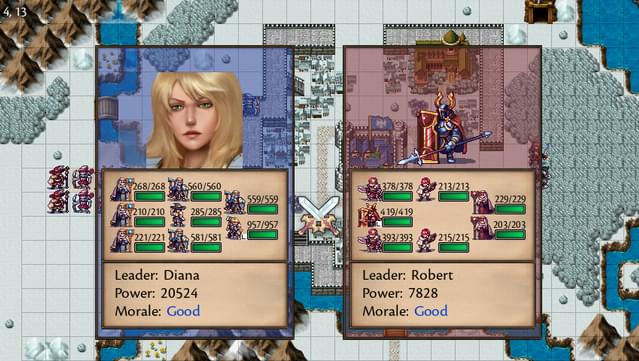In the dynamic world of professional sports, where trades and free agency constantly reshape rosters, few storylines captivate audiences quite like the player reunion. The recent returns of Damian Lillard to the Portland Trail Blazers and Chris Paul to the Los Angeles Clippers have reignited a familiar conversation: what is it about these homecomings that resonates so profoundly with fans and analysts alike?
Beyond the immediate transaction, a player returning to a former team often weaves together a complex tapestry of nostalgia, unfinished business, and strategic potential. It’s a compelling blend of human narrative and on-court calculus that transforms a simple contract signing into a cultural event.
The Magnetic Appeal of Returning Home
The allure of an NBA reunion is multifaceted. For fans, it`s an opportunity to relive past glories, to forgive perceived transgressions, or to simply witness a beloved figure don familiar colors once more. For the players themselves, it can be a quest for narrative closure, a desire to finish what they started, or a pragmatic decision to join a situation that offers the best path to success, often with a familiar comfort zone.
This phenomenon isn`t new, but recent shifts in player empowerment and league dynamics have made these narratives even more prominent. When a superstar revisits old stomping grounds, it`s rarely just about the basketball; it’s about the legacy, the city, and the emotional connection forged over years.
LeBron James: The Ever-Evolving Prodigal Son
Few players embody the reunion narrative quite like LeBron James. His career is punctuated by two highly publicized departures and one momentous return, leaving fans to ponder further hypothetical homecomings:
-
The Cleveland Crusade: A Fable of Redemption
LeBron`s return to Cleveland in 2014, after “The Decision,” was less a reunion and more an act of cinematic redemption. It mended broken hearts, reignited a dormant fanbase, and culminated in the city`s first major sports championship. The idea of a third act in Cleveland, as he approaches the twilight of his illustrious career, offers a compelling sense of narrative perfection. Imagine: closing his career where it began, perhaps even securing another championship with a revamped Cavaliers squad. It would be less a basketball move and more the final chapter in an epic, pre-written saga.
-
South Beach Encore: A Strategic Masterclass
While a return to Miami might lack the raw emotional weight of Cleveland, its strategic appeal is undeniable. James found his championship footing with the Heat, learning the discipline and culture necessary for sustained success. Pairing him with Miami`s established core and `Heat Culture` could be a potent combination. This move would be less about sentimental closure and more about a calculated bid for another title, a pragmatic pursuit of winning with a franchise built for postseason intensity. It`s the ultimate “business decision” veiled in the comfort of familiarity.
Kevin Durant: From Villain to Potential Redeemer
Kevin Durant`s departure from Oklahoma City in 2016 was, for many, an unforgivable betrayal. Joining the very team that had just eliminated them from the playoffs was a narrative scar. Yet, as years pass and the Thunder have now secured a championship without him, the landscape shifts. Anger can dissipate, replaced by a nuanced understanding of career choices. The prospect of Durant rejoining the Thunder, perhaps to secure his own legacy with the franchise he once led, offers a powerful, albeit complex, narrative of healing and strategic synergy.
A hypothetical pairing with Shai Gilgeous-Alexander would create an offensive juggernaut, a midrange connoisseur`s dream. While the “true” full-circle moment for Durant would perhaps involve a return to a Seattle-based franchise (a city still yearning for its team), a reconciliation with OKC represents the most tangible and dramatically potent reunion on the current NBA map. It would be an attempt to write a new, more harmonious ending to a famously turbulent chapter.
CJ McCollum: The Underrated “Feel-Good” Story
Not every reunion needs to be predicated on championship aspirations or mending fences. The hypothetical return of CJ McCollum to the Portland Trail Blazers, after nearly a decade as Damian Lillard`s backcourt partner, is primarily a “feel-good” fantasy. While his current team`s trajectory might make a reunion seem like a career step backward, the idea of him rejoining Lillard and the city that embraced their duo is inherently appealing.
From a purely basketball perspective, fitting him back into Portland`s crowded guard rotation would require a significant role adjustment. But the emotional resonance of seeing the band back together, even as a potent sixth man, holds a quiet charm that appeals to the romantic side of sports fandom. It`s a reminder that not all returns are about titles; sometimes, they`re about shared history and mutual affection.
Beyond the Narrative: The Strategic Chessboard
While the romanticism of these reunions is undeniable, the reality of the NBA`s financial and competitive landscape dictates that pure sentiment rarely drives these decisions alone. Any hypothetical return of a star involves intricate salary cap gymnastics, a clear understanding of roster fit, and the player`s willingness to adapt their role and ego for the greater good.
A team must weigh the potential PR and emotional uplift against the practical implications of a veteran player`s contract, age, and fit with developing talent. It`s a delicate balance where nostalgia often bumps up against the cold, hard logic of roster construction and championship contention.
In the end, NBA reunions, whether actual or merely wished for, offer a unique lens through which to view the league. They are a testament to the enduring bonds forged between players, teams, and cities. They remind us that even in a sport defined by constant movement and tactical efficiency, the human element—the story, the legacy, the desire to return “home”—remains a powerful, almost irresistible force, shaping not just the game, but its most memorable narratives.

